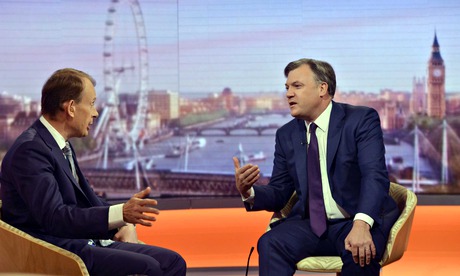" ... Al-Ghazali is considered to be the greatest Muslim scholar ever. He is called “The Defender of Islam”. He has written around 1,000 books in the Fiqah of The Islamic Human Rights Commission . In his well-renown Book, “The Revival Of The Religious Sciences” Al-Ghazali defines women role:
- She should stay at home and get on with her spinning
- She can go out only in emergencies
- She must not be well-informed nor must she be communicative with her neighbors and only visit them when absolutely necessary
- She should take care of her husband and respect him in his presence and his absence and seek to satisfy him in everything
- She must not leave her house without his permission and if given his permission she must leave secretly
- She should put on old clothes and take deserted streets and alleys, avoid markets, and make sure that a stranger does not hear her voice, her footsteps, smell her or recognize her
- She must not speak to a friend of her husband even in need
- Her sole worry should be her “al bud” (reproductive organs) her home as well as her prayers and her fast (starvation for Allah)
- If a friend of her husband calls when her husband is absent she must not open the door nor reply to him in order to safeguard her “al bud” (vagina)
- She should accept what her husband gives her as sufficient sexual needs at any moment
- She should be clean and ready to satisfy her husband’s sexual needs at any moment
The great theologian then warns all men to be careful of women for their “guile is immense and their mischief is noxious; they are immoral and mean spirited”.Like a true Muslim cleric Ghazali states “It is a fact that all the trials, misfortunes and woes which befall men come from women” [3.2]
In his Book “Counsel for Kings,” Ghazali sums up all that a woman has to endure because of Eve’s misbehavior in the Garden of Eden:
“When Eve ate fruit which He had forbidden to her from the tree in Paradise, the Lord, be He praised, cursed women with eighteen punishments:
- menstruation
- childbirth
- separation from mother and father and marriage to a stranger
- pregnancy
- not having control over her own person
- a lesser share in inheritance; (one half of the male as per the Quran)
- her liability to be divorced and inability to divorce
- its being lawful for men to have four wives, but for a woman to have only one husband
- the fact that she must stay secluded in the house
- the fact that she must keep her head covered inside the house
- the fact that two women’s testimony has to be set against the testimony of one man
- the fact that she must not go out of the house unless accompanied by a near relative
- the fact that men take part in Friday and feast day prayers and funerals while women do
not
- disqualification for leadership and judgeship
- the fact that merit has one thousand components, only one of which is attributable to women, while 999 are attributable to men
- the fact that if women are profligate they will be given twice as much torment as the rest of the community at the Resurrection Day
- the fact that if their husbands die they must observe a waiting period of four months and ten days before remarrying
The idea that a woman’s sole purpose and “duty is to stay at home to satisfy the sexual appetite of her husband” is again summed up in Ghazali’s Book “Proof Of Islam.” Ghazali is still so highly revered amongst the majority of Muslim clerics that that he is called “Proof of Islam”. The most influential thinker of Islam, Ghazali, molded the minds of billions of Muslims with his opinions on women’s character :
“If you relax the woman’s leash a tiny bit, she will take you and bolt wildly….
Their deception is awesome and their wickedness is contagious; bad character and feeble mind are their predominant traits …”
Ghazali also exhorted women: A wife should never refuse her bud (vagina) to her husband even if it is on the saddle of a camel
Al-Gazali urged those men who teach their women to write : “Do not add evil to unhappiness” learning his lessons from his prophet Muhammad and caliph Omar Ibn al-Khattab who commanded :“Prevent women from learning to write, adopt positions
opposite those of women. There is great virtue in such opposition.”
As the supreme cleric Ghazali defined marriage for generations of Muslims :
“Marriage is a form of slavery. The woman is man’s slave and her duty therefore is absolute obedience to the husband in all that he asks of her person. A woman, who at the moment of death enjoys the full approval of her husband, will find her place in Paradise.”
“Blessed is the nation that doesn’t need heroes" Goethe. “Hero-worship is strongest where there is least regard for human freedom.” Herbert Spencer
Search This Blog
Monday 14 July 2014
How capital captured politics - Why was TISA kept secret?
WikiLeaks has shown us that western democracies are now ruled by market forces that debase the very notion of freedom

'The Trade in Services Agreement prohibits more regulation of financial services, despite the fact the 2007-08 meltdown is generally perceived as resulting from a lack of regulation.' Photograph: Andy Mueller/Reuters
In May, an international trade agreement was signed that effectively serves as a kind of legal backbone for the restructuring of world markets. While the Trade in Services Agreement (Tisa) negotiations were not censored outright, they were barely mentioned in our media. This marginalisation and secrecy was in stark contrast to the global historical importance of what was agreed upon.
In June, WikiLeaks made public the secret draft text of the agreement. It covers 50 countries and most of the world's trade in services.
It sets rules that would assist the expansion of financial multinationals into other nations by preventing regulatory barriers. It prohibits more regulation of financial services, despite the fact that the 2007-08 financial meltdown is generally perceived as resulting from a lack of regulation. Furthermore, the US is particularly keen on boosting cross-border data flow, including traffic of personal and financial data. Despite all this, we heard little about it.
Yet is this discrepancy between importance and secrecy really surprising? Is it not rather a sad but precise indication of where do we, in western liberal democratic countries, stand with regard to democracy? A century and a half ago, in Das Kapital, Karl Marx characterised the market exchange between worker and capitalist as "a very Eden of the innate rights of man. There alone rule Freedom, Equality, Property and Bentham." For Marx, the ironic addition of Jeremy Bentham, the philosopher of egotistical utilitarianism, provides the key to what freedom and equality effectively mean in capitalist society. To quote The Communist Manifesto: "By freedom is meant – under the present bourgeois conditions of production – free trade, free selling and buying." And by equality is meant the legal formal equality of buyer and seller, even if one of them is forced to sell his labour under any conditions (like today's precarious workers).
The main culprits of the 2008 financial meltdown now impose themselves on us as experts leading us on the painful path to financial recovery. Their advice should trump parliamentary politics. Or, as Mario Monti put it: "Those who govern must not allow themselves to be completely bound by parliamentarians." What, then, is the higher force whose authority can suspend the decisions of the democratically elected representatives of the people? As far back as 1998, the answer was provided by Hans Tietmeyer, the then governor of the Deutsche Bundesbank, who praised national governments for preferring "the permanent plebiscite of global markets" to the "plebiscite of the ballot box".
Note the democratic rhetoric of this obscene statement: global markets are more democratic than parliamentary elections, since the process of voting goes on in them permanently (and is permanently reflected in market fluctuations) and at a global level, not only within the limits of a nation state.
This, then, is where we stand with regard to democracy, and the Tisa agreement is a perfect example. The key decisions concerning our economy are negotiated and enforced in secret, and set the coordinates for the unencumbered rule of capital. In this way, the space for decision-making by the democratically elected politicians is severely limited, and the political process deals predominantly with issues towards which capital is indifferent (like culture wars).
This is why the release of the Tisa draft marks a new stage in the WikiLeaks strategy: until now its activity has been focused on making public how our lives are monitored and regulated by the intelligence agencies – the standard liberal topic of individuals threatened by oppressive state apparatuses. Now another controlling force appears – capital – which threatens our freedom in a much more twisted way: by perverting our very sense of what the word means.
Saturday 5 July 2014
It's time to revive public ownership and the common good
Despite its dire record, privatisation is rarely questioned. We must push for our shared interests to take precedence

Ed Balls on The Andrew Marr Show, where he said: 'I don’t want to go back to the nationalisation of the 1970s.' Photograph: Jeff Overs/BBC/PA
It might sound like an oxymoron, but this is a positive article about public services. So effectively has the coalition rebranded an economic crisis caused by private greed as the consequence of public ownership, that nationalisation has come to be seen as a universally discredited hangover from bad old Labour. So while current Labour is considering taking back parts of the rail network into public ownership the shadow chancellor, Ed Balls, last weekend was intoning the neoliberal catechism: "I don't want to go back to the nationalisation of the 1970s."
But bringing outsourced services into public ownership isn't about looking back: it's about moving forward, and is a popular idea (66% of respondents in a poll last year supported the nationalisation of energy and rail companies, including 52% of Tories). For today, in the face of the combined bungles of G4S, Serco and Atos, not even the slickest PR-turned-politician can sustain the myth that private equals efficient.
Yet privatisation is touted as a panacea and cliches are trotted out about the evils of the "nanny state". We need to develop a new language to talk about public ownership, one that detoxifies it and taps into the wide recognition that natural resources and essential public services should not be treated as commodities.
Instead of talking about the state, Hilary Wainwright, in a powerful new booklet – The Tragedy of the Private, the Potential of the Public – describes water, health and education as "the commons" – an excellent term. What's remarkable, and hitherto fairly undocumented, is how all over the world a quiet process of remunicipalisation is taking place. Wainwright gives examples from Newcastle to Norway. In the UK, she found over half of 140 local councils bringing services back from the private sector. In Germany, by 2011 the majority of energy distribution networks had returned to public ownership. Even in the US, a fifth of all previously outsourced services have been brought back in-house.
The case of water is a particularly powerful one: to most people the idea of privatising it is alarmingly similar to the privatisation of air. Wainwright tracks struggles to resist the privatisation of water and defend it as a public good in Brazil, Uruguay and Italy.
What makes all this heartening is that new social forms of ownership are emerging in which public utilities are run by coalitions of workers and service users. Theirs isn't just a defence of public services but an attempt to democratise them so they are not the top-down bureaucracies of old or simply job-saving strategies (important though these may be). They become what Wainwright calls "new forms of collectivity" – unions and public managing common resources together for shared benefit.
There is a palpable momentum to these ideas. Last summer saw the formation of the We Own It campaign, which is lobbying for a public service users' bill. This would promote public ownership as the default option for public services and give the public a say in whether services are privatised. This week, a New Economics Foundation working paperalso set out alternatives to the marketisation of public services.
These constitute a challenge to the fatalistic there-is-no-alternative narrative that has dominated political discussion. In his recent book, Does the Richness of the Few Benefit Us All?, sociologist Zygmunt Bauman argues that the alleged "musts" of political discourse "are nothing other than various aspects of the status quo – of things as they do, but in no way must, stand at the moment".
Wainwright observes that austerity in the aftermath of the second world war applied to everything except the welfare state, which saw generous investment. In a decade or so, will we come to view the privatisation of public utilities as a brief historical interlude of market madness, of ideology trumping not only human values but also value for money?
Friday 4 July 2014
Making Test cricket interesting
By Girish Menon
Recently most commentators seem to justify lifeless pitches from a commercial point of view i.e. to make the test match last a minimum 4 days if not the full 5. I wondered if there is no other way to have exciting cricket and make it last 4-5 days as well. Then I had an idea which I wish to share with you and which, I hope, will make for exciting test cricket on lively pitches.
If a team collapses in any innings thereby enabling their opponents to win a test match in say 2/3/4 days then the losing team can invoke a third innings wherein it has to score more runs than their opponents whilst taking thirty wickets within the time left in the test match. If the team that invoked the third innings fails to take 30 wickets whilst scoring more runs than their opponents then the victorious result after the second innings will stand.
I look forward to your comments below:
Recently most commentators seem to justify lifeless pitches from a commercial point of view i.e. to make the test match last a minimum 4 days if not the full 5. I wondered if there is no other way to have exciting cricket and make it last 4-5 days as well. Then I had an idea which I wish to share with you and which, I hope, will make for exciting test cricket on lively pitches.
If a team collapses in any innings thereby enabling their opponents to win a test match in say 2/3/4 days then the losing team can invoke a third innings wherein it has to score more runs than their opponents whilst taking thirty wickets within the time left in the test match. If the team that invoked the third innings fails to take 30 wickets whilst scoring more runs than their opponents then the victorious result after the second innings will stand.
I look forward to your comments below:
Subscribe to:
Posts (Atom)
